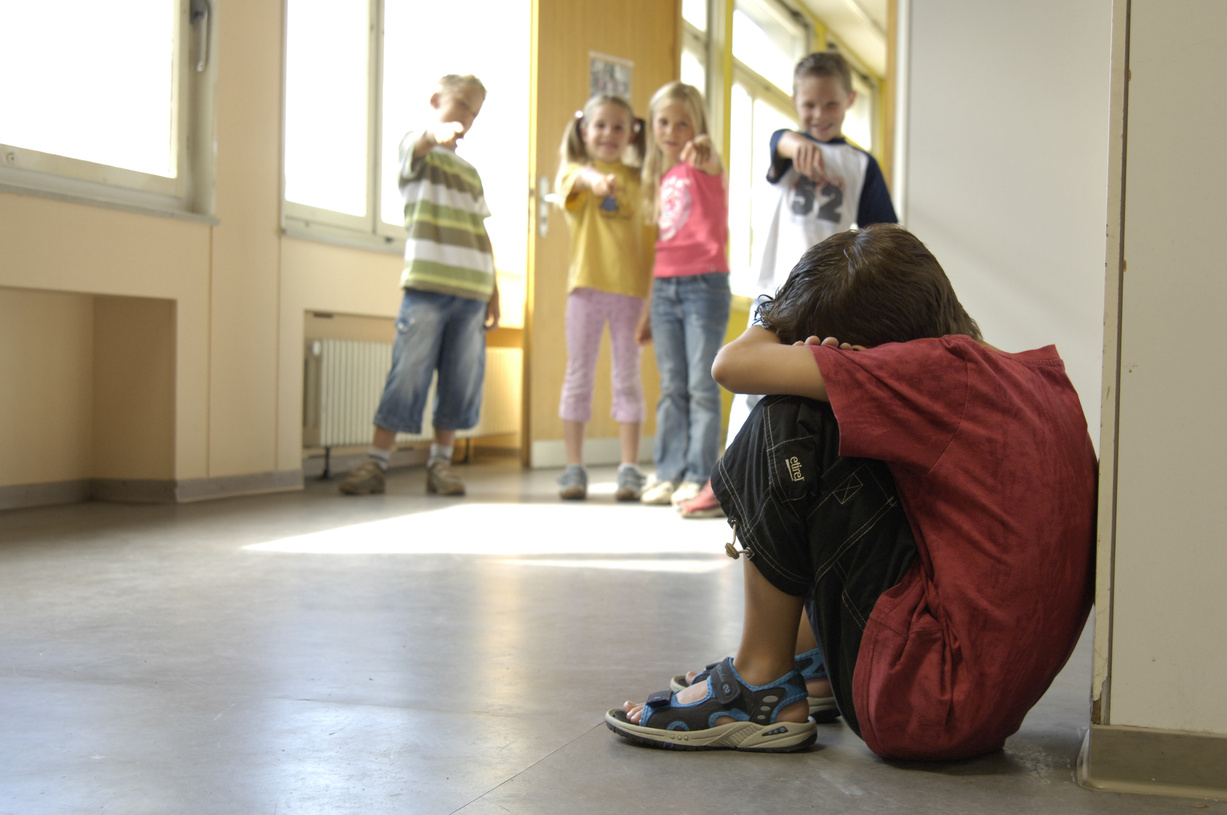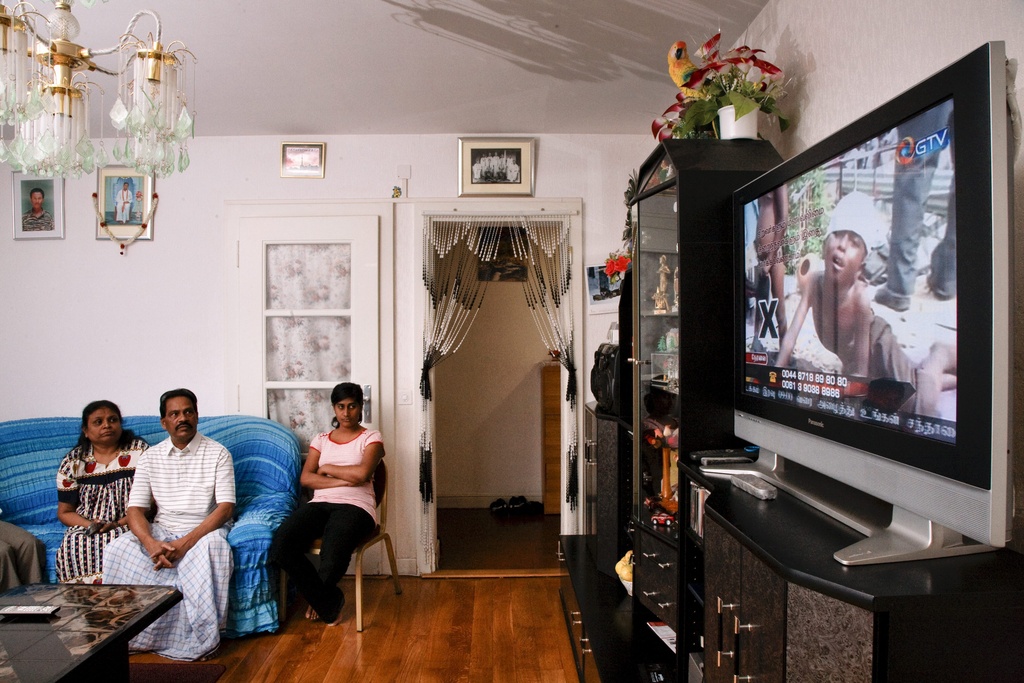Attitudes towards minorities “getting worse”

The political climate for minorities in Switzerland is becoming more difficult, an expert tells swissinfo.ch.
Gülcan Akkaya, vice president of the Federal Commission against Racism, says Switzerland needs a policy that includes and recognises everyone living here.
Her comments come after the population voted in favour of a controversial anti-minaret building initiative in November 2009 and prepares to vote on a people’s initiative to deport foreign criminals. Another issue making the news is the debate in Switzerland over wearing headscarves and burkas.
Akkaya works as a project leader and teacher at Lucerne University’s institute of socio-cultural development.
swissinfo.ch: Minorities have been scapegoats for thousands of years. Why?
Gülcan Akkaya: Groups feel the need to set themselves apart using a huge variety of criteria. The main thing is that these boundaries do not question the right of other groups to exist. Stereotypes can be dangerous – comments like, “all foreigners collect welfare or are criminals”.
These stereotypes appear not just in everyday situations, but also in the media and in literature. If we want to stop prejudices, then we need to replace them with non-discriminating images. The way the image of blacks has changed in our schoolbooks over the last decades is an example.
At the same time, societal segregation continues at various levels. This leads to discrimination on the job market, in the media, in politics and legislation.
swissinfo.ch: Discrimination affects not only large minorities like gypsies, Tamils, Turks, Jews and Muslims, but also those who don’t conform to society’s norms, such as the overweight, red-haired or unfashionable.
G.A.: It is true that discrimination affects not only ethnic and racial groups but also other groups that deviate from the accepted norms. But in any event, the promotion of tolerance and human rights education is a help.
Switzerland needs a policy that includes and recognises everyone living here. That is an important requirement for social cohesion and solidarity.
swissinfo.ch: Is discriminating against those who are different a part of human nature?
G.A.: Indeed it is quite common when a group tries to establish its own identity. However, in this regard people are also adaptive. An example of this is the development of human rights as well as the development of a culture that protects minorities.
swissinfo.ch: The concept of the enemy in the form of other ethnicities or pseudo-invalids is however common in our society.
G.A.: Yes, I would even say that the political climate regarding minorities – whether black, Muslim or seeking asylum – has become worse in the past few years. And rightwing parties and to a degree the media cling to this hostile typecasting of foreigners.
swissinfo.ch: Is this a mechanism found in other cultural circles as well?
G.A.: A distorted image of others – of strangers – is certainly present in all ethnicities. Prejudices exist in all societies.
swissinfo.ch: Aren’t we capable of learning from past mistakes?
G.A.: To a degree, yes. For example, after centuries of wars, Europe has learned that peace is possible. On the other hand, discrimination and exclusion repeats itself over generations.
After the Second World War the slogan was “no more war”. In the meantime we know that reality is different. There are still numerous warlike conflicts.
swissinfo.ch: And the conflicts keep getting more brutal. Many of the warring parties don’t bother about the Geneva Conventions, which demand protection of the civilian population.
G.A.: Wars have always been brutal. Today’s violence mainly affects the civilian population. Therefore it is crucial to ensure that the human rights of civilians in warzones are not breached. However, the defence of human rights is important not only in extreme situations but also in peaceful ones – otherwise it’s a breeding ground for conflict and violence.
swissinfo.ch: By this, you’re referring to the minaret and upcoming criminal deportation initiatives?
G.A.: Exactly. Other examples involving important principles of human rights include the current discussions on wearing headscarves and burkas, where stereotypes come into play. During these debates it is key that society finds solutions that respect diversity and set an example for living together peacefully.
Etienne Strebel, swissinfo.ch (Translated from German by Susan Vogel-Misicka)
Akkaya has a master’s degree in social work and is a project leader and docent at Lucerne University’s institute of socio-cultural development. There she teaches on the topics of human rights and community intervention.
She also works on issues like migration and integration and has concrete experience in the field.
Since 2003 she has led the Caritas Switzerland project for the support inter-ethnic dialogue and minority integration in Kosovo.
In 2008 she was elected vice president of the Federal Commission against Racism.
At the end of 2009 there were 1,680,197 legally resident foreigners in Switzerland.
Of these, 1,066,086 persons were nationals of the European Union or the European Free Trade Area.
One in every four employed persons in Switzerland has a foreign passport.
In 2009 44,948 persons were granted Swiss citizenship. Most came from Kosovo, Italy, Germany and Turkey, continuing recent trends.
16,005 persons applied for asylum in Switzerland. Most came from Nigeria, Eritrea, Sri Lanka, Iraq, Somalia, Afghanistan, Kosovo, Georgia, Serbia and Turkey.
The approval rate of asylum applications was 16.3%.
Asylum seekers account for 2.5 per cent of legally resident foreigners.
Since the Second World War, about two million people have immigrated to Switzerland, or are the descendents of immigrants.
One tenth of Swiss nationals live abroad.
(Source: Federal Migration Office)

In compliance with the JTI standards
More: SWI swissinfo.ch certified by the Journalism Trust Initiative













You can find an overview of ongoing debates with our journalists here . Please join us!
If you want to start a conversation about a topic raised in this article or want to report factual errors, email us at english@swissinfo.ch.